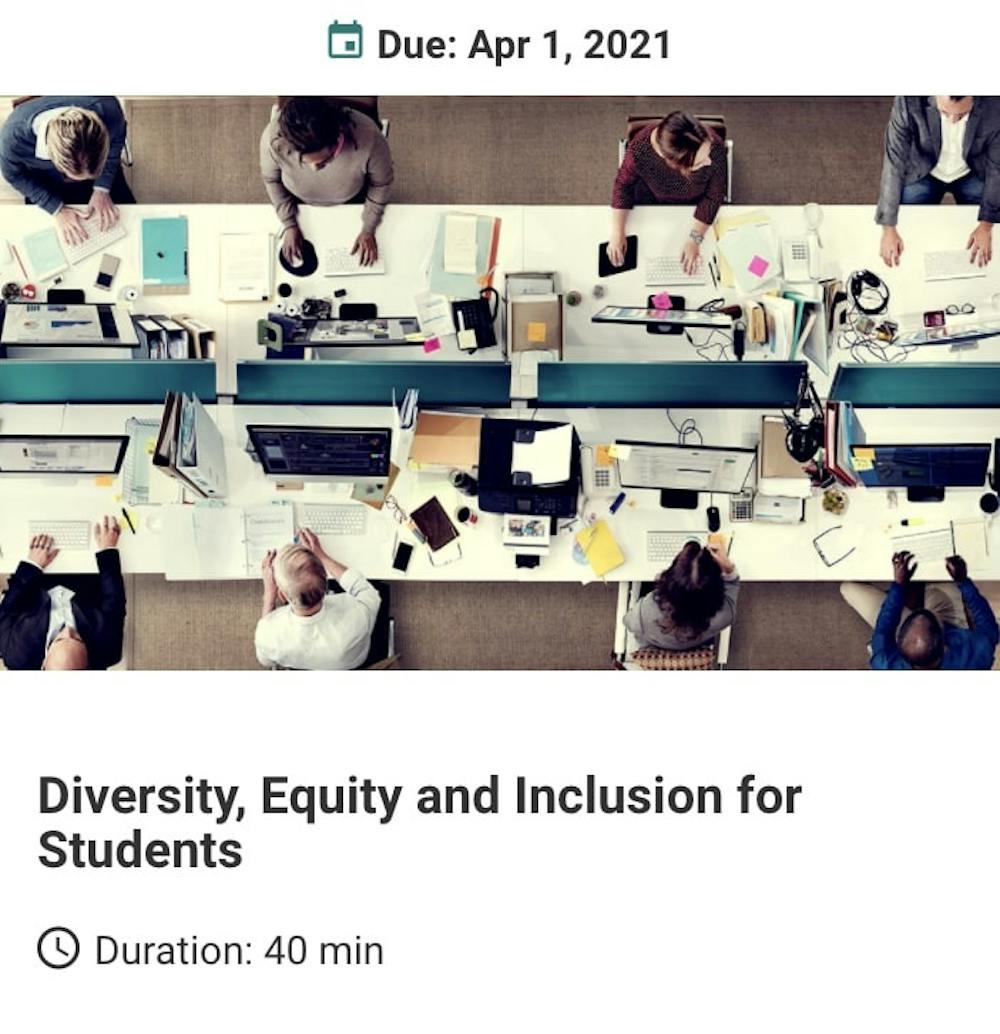UF students received an email alerting them to a new assignment. But it wasn’t classwork from any of their professors.
“Hate, bias, discrimination, and racism have no place at the University of Florida,” the email read, inviting students to an online diversity, equity and inclusion training course.
UF paid $38,000 to implement a diversity, equity and inclusion training program for students and faculty as a part of its anti-racism initiatives. The 40-minute training is recommended for all students, faculty and staff and covers topics such as discrimination, intersectionality, oppression, inclusion and identity. The course had a deadline of Jan. 31 for faculty and staff but is still accessible as a resource. Students have until April 1 to complete the course.
The course is being offered through EVERFI, an interactive online training platform, which UF previously partnered with to offer the required sexual assault prevention and alcohol education courses for students.
“We view this course as a building block available to enhance students’ education and awareness of new and familiar topics centered on inclusion that may support their cultural competency while at UF and beyond,” Vice President for Student Affairs D’Andra Mull said.
The resurgence of the Black Lives Matter movement this Summer prompted UF to reconsider its role in perpetuating racism. The university discontinued the use of the “Gator Bait'' chant, which was tied to the practice of using Black children as alligator bait in the South, and promised to review and remove historical monuments and building names that honor the Confederacy. UF also vowed to end its use of prison labor and officially severed its contracts Sep. 11.
However, Asian American Student Union co-Presidents Britney Rengert and Zachary Raad think the new course only works as a surface-level introduction for people who may not have exposure to diversity and inclusion topics.
“A lot of the material and information was familiar to us because it’s stuff that we talk about in terms of advocacy with our organization a lot,” Rengert said. “People often seek out the information if they're interested in it. For people who have really no interest in diversity and inclusion, they're not going to take a lot from it.”
Raad thought the course was an improvement from other inclusion efforts he’d seen from UF but felt it was still not specific or thorough enough to leave lasting impacts.
“You can’t really undo long-standing beliefs and behaviors with a 40-minute training,” he said.
He also has taken issue with the way UF glossed over its own history of discrimination.
Many students have also fought to rename the Reitz Union, named after J. Wayne Reitz, who had a history of actions against the Black and LGBTQ+ communities during his time as president of UF. So far, their efforts have not been successful.
Moving forward, Raad said he wishes to see more accountability from the university.
“If the institution wants to make progress, at some point it has to admit its own faults,” he said.
The co-presidents agreed the resources UF used for the course would have been better spent on existing programs, such as the university’s ethnic and gender studies programs, the Counseling and Wellness Center, and the Disability Resource Center.
“What is the school doing to make sure that our ethnic studies programs or our gender studies programs is getting the support it needs?” Raad asked. “How are we making sure that the Counseling and Wellness Center have staff and counselors who are equipped to deal with students of all backgrounds?”
This article has been updated to reflect that UF paid $38,000 to implement a diversity, equity and inclusion training program for students and faculty. A UF spokesperson and The Alligator initially reported otherwise.
Contact Sofia Echeverry at secheverry@alligator.org. Follow her on Twitter @sofecheverry.

Sofia is a news assistant on The Alligator's university desk. This is her second semester at paper, where she previously worked as a translator for El Caimán.






